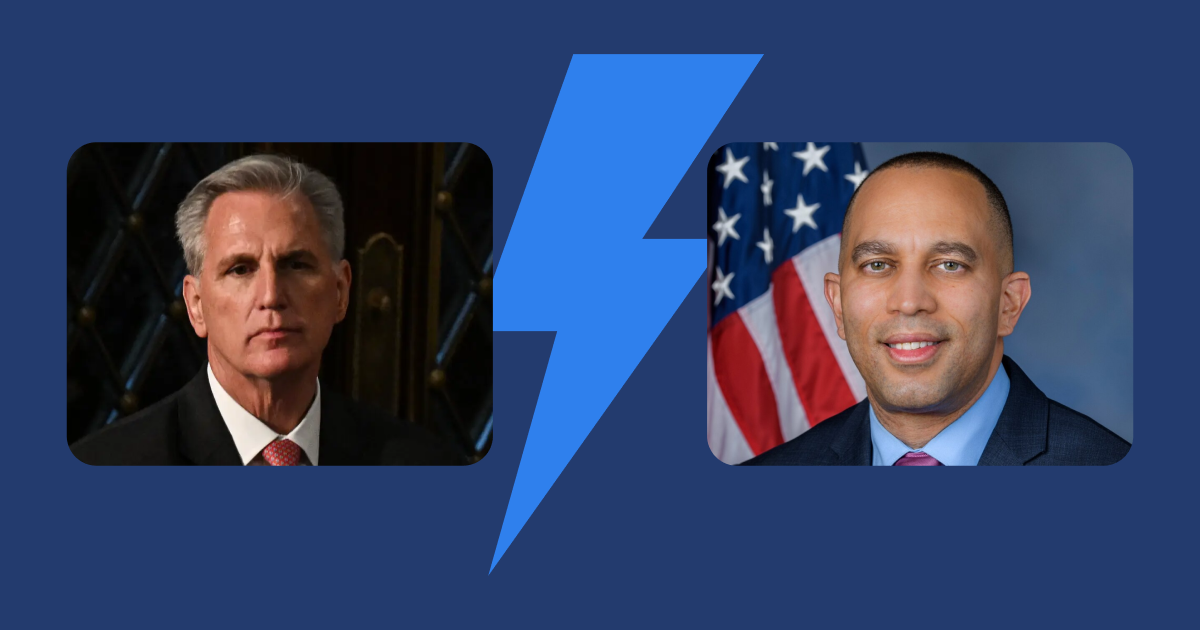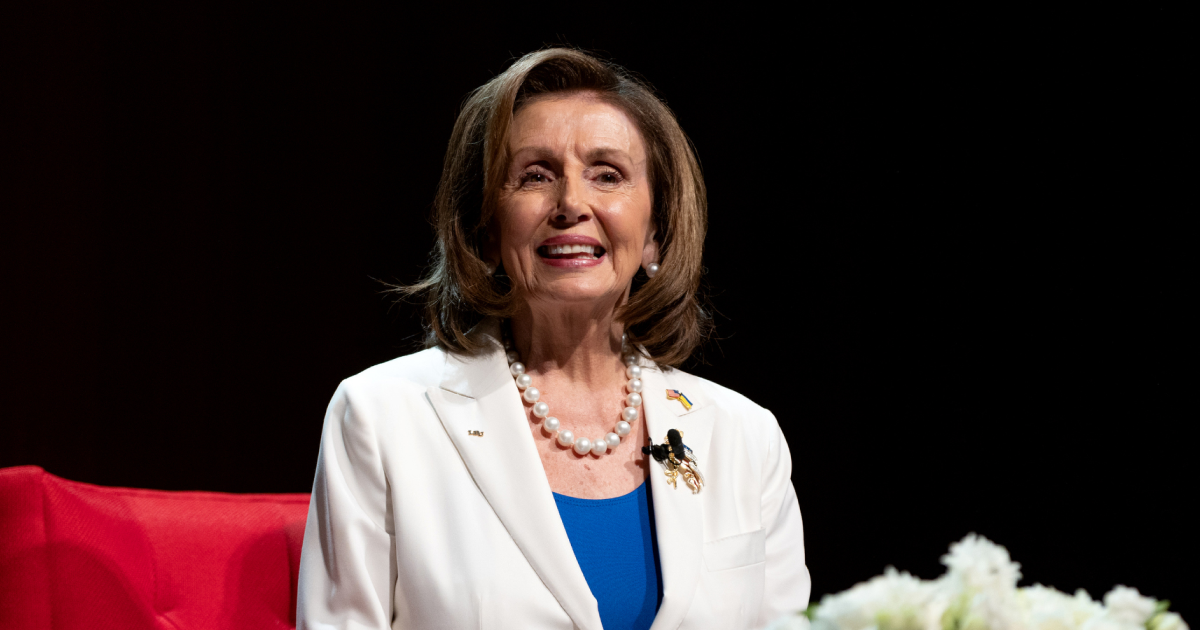How the change of the US House Speaker will affect support for Ukraine

The Speaker of the US House of Representatives is the third most important position in the country. It is the Speaker who assumes the powers of the head of state when something happens to the president and vice president. In addition, the House cannot pass laws and resolutions or even organise the work of the House, as it is the Speaker who sets legislative priorities and decides what to put to a vote.
In October, Speaker Kevin McCarthy was dismissed from his post for the first time in US history. Read the article to find out how this will affect support for Ukraine.
What happened at the House of Representatives
On October 3, the House of Representatives voted the Republican Speaker, Kevin McCarthy, out of the job. Republican Matt Gaetz of the Freedom Caucus initiated the resignation. This group was formed of radical members of Congress with right-wing views within the Republican Party. They support the candidacy of Donald Trump in the presidential election and advocate a policy of US isolationism from the global world, including withdrawal from NATO and a strict immigration policy. So far, 20 Republicans in the House have officially joined the caucus.
After the midterm congressional elections in November 2022, Republicans won a narrow majority — only 221 seats out of 433. A minimum of 217 votes is required to pass any bill.
The Republican Party nominated Kevin McCarthy, a Republican from California, as its candidate for speaker. The Democrats refused to vote for him and appointed Hakeem Jeffries as their opponent. Republicans had to find the necessary number of votes within the party.

Republicans from the Freedom Caucus delayed the process of electing a speaker. They demanded concessions from the party. For example, they wanted the House to implement their mechanism for removing the speaker from office: only one member of the House – a Democrat or a Republican – could put a motion to dismiss the speaker to a vote. Also, only a majority vote of the House of Representatives is required to remove the Speaker.
When McCarthy's predecessor, Nancy Pelosi, was elected, the House introduced a rigorous removal mechanism: a motion to dismiss could be put to a vote in the House, provided that it was supported by a majority of the party in one or the other party. There are no clear rules in US law for removing the Speaker — the House establishes a dismissal procedure each time a new Speaker is elected.

Between January 3 and 7, the voting took place in 15 rounds. On January 7, the House finally elected Republican candidate Kevin McCarthy as Speaker.
To win the post, Republican candidate Kevin McCarthy agreed to make concessions to the Freedom Caucus. The Republican Party expected that this step by McCarthy would calm down the representatives of the caucus, while McCarthy hoped they would not apply the scheme.
The problems began in early September when discussing articles in the draft federal budget financing bill. The bill split the House of Representatives. Congress had to approve new funding by the end of the fiscal year, on September 30. Republicans from the Freedom Caucus did not agree to military aid to Ukraine and demanded that the funding be entirely revised.
The delay in the budget voting process by the Caucus congressmen threatened to impose a "shutdown" — a complete halt to the work of federal institutions in the United States that cannot operate without a new budget.
To keep federal institutions open, the House voted to fund the government for 45 days temporarily on the last day of the fiscal year. To ensure the funding would be voted on, McCarthy removed a $6 billion line item for Ukraine from the stopgap bill to prevent a federal government shutdown. Radical Republicans in the caucus had demanded precisely that. However, even after the concession, they did not vote for the temporary funding. The votes were cast by the Democrats "to prevent a government shutdown". Two days later, McCarthy was removed from office.
Immediately after the vote on temporary funding in October, the caucus Congress members used the mechanism of the speaker's removal and filed a motion to remove McCarthy. Caucus Congress member Matt Gaetz mentioned "working with Democrats" on the federal budget and "secretly funding Ukraine instead of directing funds to southern border customs" as the reason.
On October 2, Matt Gaetz said during a meeting of the House of Representatives: "Members of the Republican Party might vote differently on a motion to vacate if they heard what the speaker had to share with us about his secret side deal with Joe Biden on Ukraine." He was alluding to the president's words about an agreement on a separate vote to support Ukraine.
On October 1, during a press conference, Joe Biden called on House Republicans and Speaker Kevin McCarthy to keep their word on a vote on government funding and aid for Ukraine.
"We just made (a deal) about Ukraine. So, we’ll find out," he said when asked about Speaker McCarthy's credibility. Biden did not comment on the potential intentions of House Republicans to fire McCarthy and vote on the stopgap funding bill.
Kevin McCarthy denied the allegations and said that he had not agreed anything with anyone. He also denied Biden's words, but it was enough for the Congress members of the caucus to start the resignation process. They also did so because their electorate wanted them to stick to their principles "no matter what" rather than compromise for the sake of results.
The majority of Republicans refused to support the decision of the caucus. But Democrats voted for the release. House Democratic Leader Hakeem Jeffries explained that McCarthy was "meeting the demands of extremists (caucus members - ed.) in his party". He pointed to the chaotic 15 rounds of voting to elect McCarthy as a speaker and the concession to the far-right Republicans in simplifying the procedure for removing the speaker from office.
Kevin McCarthy refused to run for the position again, explaining that he planned to "fight another way" (he did not specify whether he meant the position of speaker - ed.)
"McCarthy he lacked ballast — a politician for which power was the principal goal, rather than a vision and convictions about why he wanted that power," says Dan Balz, chief correspondent at The Washington Post.
The House of Representatives is now temporarily suspended. Until a new speaker is elected, members of Congress will not be able to vote on legislative initiatives, including the federal budget.
How this affects Ukraine
Support for Ukraine is falling among Republican voters. They are concerned about the country's internal situation, income, and immigrants. Members of Congress with a radical position from the caucus, who depend on voters, understand this. The leadership of the Republican Party is also aware of this. But while some Republicans favour implementing aid controls, the radical minority uses voter sentiment to show their influence on the country's politics.
"The work of the House has stopped. Congress cannot vote on any project, including funding for Ukraine. Temporary funding has been introduced for only 45 days, and then a shutdown is possible. This delay in the adoption of aid for Ukraine and Israel is a cause for concern," says Ostap Yarosh, a journalist with Voice of America.
On October 10, the House launched the process of electing candidates for the speaker post. First, the Republicans chose Steve Scalise as their candidate in an internal party vote. He is the party's leader in the House and supports further assistance to Ukraine.
Scalise defeated Jim Johnson, an ally of former President Donald Trump and head of the Freedom Caucus. However, on October 11, Scalise withdrew his candidacy for speaker after the Caucus announced that it would not vote for him in the House.
On October 13, Republicans elected Jim Johnson in an internal party vote. But 50 members of Congress voted against his candidacy. So, the Republican Party will not be able to get the 217 votes needed for the vote on its own again. On October 17, Jim Johnson lost at the election process for Speaker of the House of Representatives by 199 votes. 22 Republicans refused to vote for him. The Democrats also refused to vote for him, calling it as "a Republican problem".
McCarthy's dismissal split the Republicans. Experienced Congress members are "dissatisfied" with the active Republicans from the caucus and the fact that they care about their careers more than the party and politics.
The majority of Republicans in Congress are trying to "calm down" the Freedom Caucus and are even amending the internal party voting to limit their ability to block party decisions. The Democrats warn that they will "not support them" in the vote for a new speaker because they want to distance themselves from the Republicans' internal issues. They nominated their leader, Hakeem Jeffries.
Therefore, the choice of a candidate for the post of speaker and the voting process in the House depend on the ability of the Republican Party to reach an agreement within the House. And potential support for Ukraine depends on the future speaker being influential.
Ostap Yarosh believes that the situation significantly impacts US support for Ukraine. "The Biden administration has requested $24 billion in aid for Ukraine (Editor’s note: Joe Biden appealed to Congress to approve $61.4 billion for Ukraine on October 20th). There are voices in support of Ukraine in Congress, both in the Senate and the House of Representatives. But it all lies with the next speaker and their views. The speaker decides what to put to a vote and can delay such decisions," Yarosh says.

How this situation will affect the 2024 House of Representatives elections
The split in the Republican Party could affect the congressional elections next year. Supporters of radical currents rally around members of Congress from the caucus, while more moderate supporters are moving away from the party and its candidates.
"The blow was far more to the status of the Republican Party. It is a party whose leader for its presidential nomination sits in a New York courtroom, who faces four other trials for criminal indictments ahead, and who promises vengeance and retribution if elected in 2024. It is also a party with a tight group of rebels in the House who have shown that they can make turmoil the order of the day in Congress," comments journalist Dan Balz.
The issue of Ukraine is becoming part of US domestic politics. Representatives of both parties are using bills and resolutions on Ukraine in the 2024 presidential and congressional election campaigns. The blocking of aid and the removal of items from the budget are proof of this. The issue of Ukraine also affects intra-party relations, especially in the Republican Party.
"The split among Republicans is already evident. Congress members from the party, who are more moderate, are angry with the radical representatives of the caucus. In the media, they openly call the current situation a circus," says Ostap Yarosh.
The decision is up to the Republican Party. They can calm down the radical Freedom Caucus Congress members to win the 2024 elections or constantly make concessions to them for fear of delaying the work of Congress. The example of Kevin McCarthy shows that the second option is quite risky.


